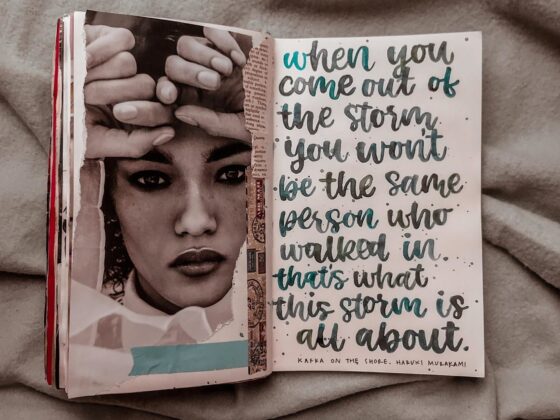Does Pain Interfere With Your Sleep?
I want to share a trick that can help you manage pain that blocks you from a peaceful night and keeps you from waking up refreshed and ready to conquer your day.
You may have chronic pain that stops you from falling asleep, where you become distressed, thinking “When is this going to end?” or “What did I do to deserve this?”

Or you may have emotional pain (who doesn’t?) that you manage to suppress during the day, but then it bubbles to the surface once it is quiet and dark and your life is speaking to you, saying, “Hey, what’s the truth about what’s REALLY going on with you?”
It hurts.
Here’s a solution to try. Simply commit to 4 or 5 days of expressive writing before you tuck yourself into bed. Dedicate 10 or 20 minutes each night, and write about your pain in your journal or on your computer (be sure to adjust your brightness levels and dim your screen).
You want to examine your pain and see if you can make sense of it; to see if you notice different perspectives emerge in your thinking and feeling about it. And you want to lessen its influence on your sleep.
This practice is more than journaling, which typically has no specific direction or goal, and may even be detrimental if the writing does not move you towards understanding your experiences. Simply listing your daily events without examining the impact of those events doesn’t benefit you either.
Pain, like any other symptom, has messages for us. Explore the meaning.
- Do you need to slow down?
- Do you need to find ways to avoid that “pain in the neck” person?
- Do you need to be more respectful of your physical needs for comfort?
- Do you need more time to yourself?
- What is it? What message is trying to break through?
A caution: Physical measures such as blood pressure and heart rate during and after writing show that the writing may initially upset you, but eventually will help you relax. Tension dissipates with the process of writing, and this relaxation factor alone will move you faster into the deeper healing stages of sleep and keep you there longer during the night.
When I was sick and recovering from Chronic Fatigue Syndrome and fibromyalgia, I used expressive writing as a key element of my daily practice to handle huge amounts of pain.
I needed to vent somewhere! It was a wonderful release and I was astounded when my pain levels actually began to decrease and I was able to sleep better. It was like magic.
When you are writing from a stream of consciousness, you might be surprised at the wisdom and solutions that will bubble up from the deep intelligence of the body.

How To Do It
Find a comfortable place and position, and write about how the pain feels in your body. Emotional pain always carries physical symptoms too, although you might need to really dig deep to sort it out. Or it might be quite obvious to you.
Locate your pain and pay attention. Describe it.
- Is it sharp, dull, vibrating, radiating?
- Rate it from 0–10 in intensity.
- How does it change during the day?
- What makes it worse, and what makes it better?
- How has it changed the way you live your days?
- How has it affected your habits, your behaviours, your family, your job?
- What are all the implications of this pain?
Write in-depth if you can about how it affects you and how you feel about it emotionally. Explore why this pain exists for you right now. It could carry several layers of meaning.
Admit to yourself how much you are suffering. Have some compassion for yourself, because pain is very personal and no one will be able to understand how you are feeling. It doesn’t show and can’t be measured in a blood test.
Go deep and really feel it. Let your thoughts float, don’t edit, and just write down everything that comes to you related to your experience of pain. Get to know your pain, befriending it instead of resisting it. You can even give it a colour, or a name, or a cartoon character!
Do this for 4 or 5 days. Then, surprise! Typically, you will notice a shift in your thinking that may take the sting out of the pain. And you begin to relax and regard the pain as a loving message.
Your writing may surprise you and reveal some workable solutions to help you manage. And a great result is that you will improve your sleep!
Try it and let me know how it works for you.
Want to Learn More?
Evidence continues to build about how expressive writing may help with sleep, asthma, headaches, rheumatoid arthritis, cancer, wound healing, stress, anxiety, fatigue, and even marks at school.
To learn more, here’s a general article about expressive writing from Arthritis Self-Management.









